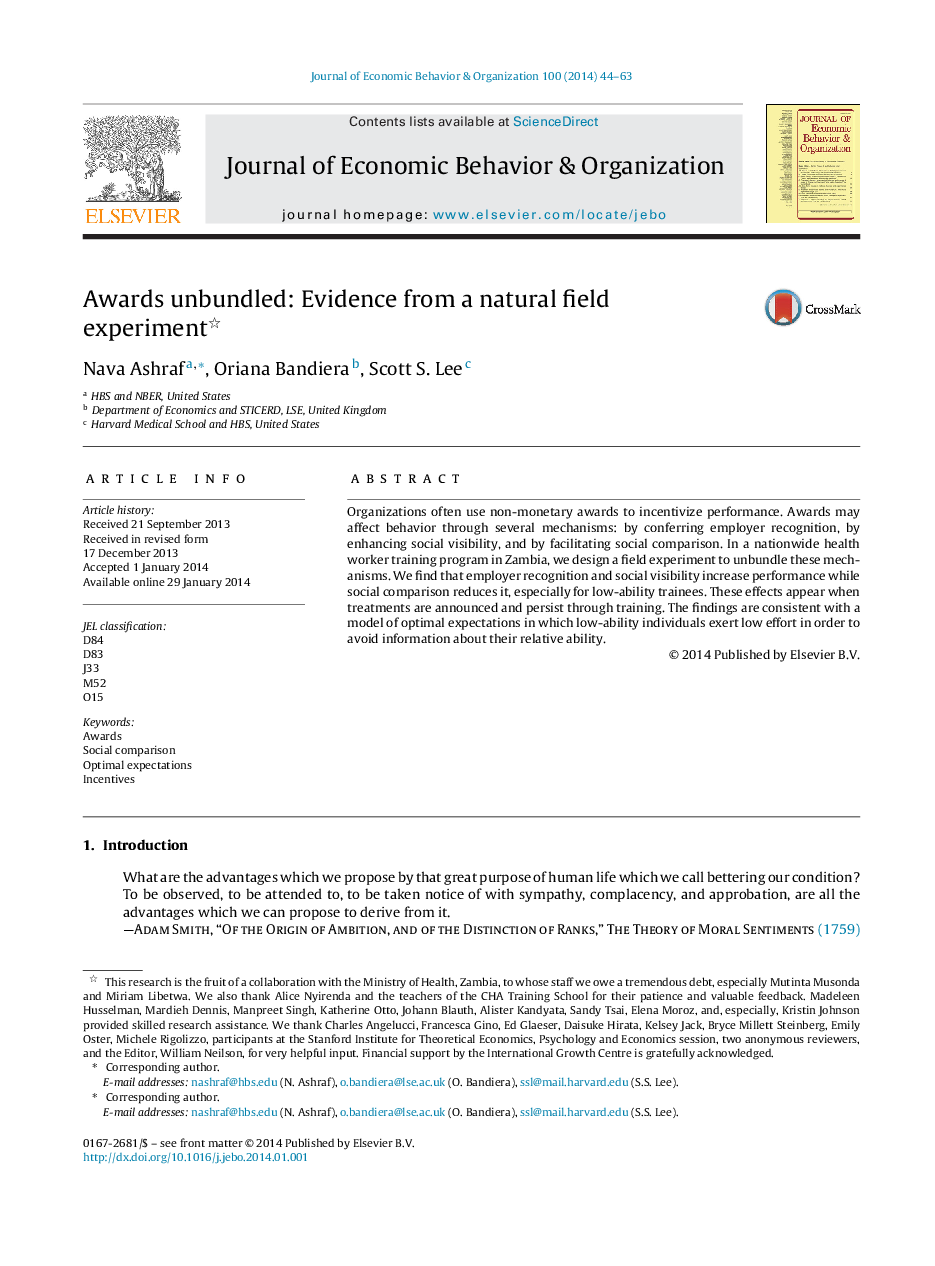| Article ID | Journal | Published Year | Pages | File Type |
|---|---|---|---|---|
| 883541 | Journal of Economic Behavior & Organization | 2014 | 20 Pages |
•Employee awards can affect effort via social comparison, visibility, and recognition.•We run a field experiment with Zambian health trainees to unbundle these mechanisms.•Recognition and visibility improve performance, while social comparison worsens it.•These effects appear at the onset, persist, and are stronger for low-ability trainees.•These findings are consistent with an optimal expectations model of agent behavior.
Organizations often use non-monetary awards to incentivize performance. Awards may affect behavior through several mechanisms: by conferring employer recognition, by enhancing social visibility, and by facilitating social comparison. In a nationwide health worker training program in Zambia, we design a field experiment to unbundle these mechanisms. We find that employer recognition and social visibility increase performance while social comparison reduces it, especially for low-ability trainees. These effects appear when treatments are announced and persist through training. The findings are consistent with a model of optimal expectations in which low-ability individuals exert low effort in order to avoid information about their relative ability.
